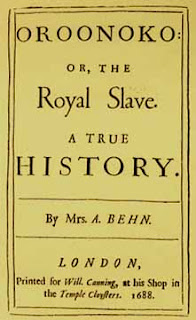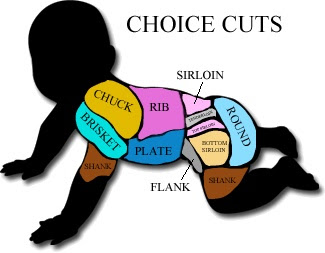Reaping the Benefits of the Enlightenment Period (Blogpost 1)
 Imagine that you are living in a time where you were expected to maintain staunch devotion to religion and to endure unethical treatment from those in authority. Imagine a time that theaters were closed and it was forbidden to participate in science, logic, and reasoning, which were all deemed as heretical. My point is that life, in this way, according to these constructs, is hard to imagine, right? Well, that is exactly the way that life was prior to the 1600s, which marked the beginning of the Restoration period.
Imagine that you are living in a time where you were expected to maintain staunch devotion to religion and to endure unethical treatment from those in authority. Imagine a time that theaters were closed and it was forbidden to participate in science, logic, and reasoning, which were all deemed as heretical. My point is that life, in this way, according to these constructs, is hard to imagine, right? Well, that is exactly the way that life was prior to the 1600s, which marked the beginning of the Restoration period. There was no push for personal liberties and rights, which left the majority of the people feeling hopeless and in despair. Also, society was based on a hierarchical structure that differentiated between the affluent and the beggarly. Independent thought was not only poorly celebrated and disregarded but, on certain accounts, was punishable by death. Anything that differentiated from what the Church taught was not easily promoted, causing the masses to fear religion and the Church, itself.
 |
| Many discussions concerning liberty, individual rights, and new Enlightenment ideas took place in coffeehouses. |
During King Charles II's reign, there was a major shift from Richard Cromwell's strictly Puritan regime to a less restrictive form of government. Scientific study and a sense of exploration of the world was sparked during this time period and the voices of the people began to develop as more and more people began to voice their opinions about religion, the monarchy, and human life. Intellectuals and those who were interested began to renounce the dogmatic religious beliefs that they once were forced to uphold and a new sense of freedom was spreading. The masses were pursuing pleasure and personal freedom rather than being pigeonholed as they were before.
In comparing this period with the 21st Century, there were two major similarities that stood out to me. I was not aware that it was during this time that there was a significant expansion in newspapers and books. This is important because as the distribution of such materials began to increase, so did the audience appeal. During this time censorship began to wane, which made it easier for Enlightenment writers to share their views. Today, with the Internet and social media platforms, we are able to reach broader audiences. Literally, any piece of information can be dispersed in a matter of seconds and read by millions through shares, retweets, and reposts.
Being that we are a democracy, the ideas of our government stem from the ideas first sparked during the Enlightenment. John Locke's idea of 'Life, Liberty and the Pursuit of Happiness', which is found in the Declaration of Independence can be traced to this time period. Simply put, we are a product of the Enlightenment and the philosophies and theories that helped to shape this period in history - many of which are still prevalent during this time.
Sources:
- Greenblatt, Stephen, and M.H. Abrams. The Norton Anthology of English Literature. W.W. Norton, 2012.
- History.com Staff, History.com Staff. "Enlightenment." History.com, A&E Television Networks, 2009, www.history.com/topics/enlightenment.
- McClurkin, James. "The Social Network of the 1600s." Coffeehouse Addict, 24 Jan. 2014, www.coffeehouseaddict.com/the-social-network-of-the-1600s/.



Comments
Post a Comment